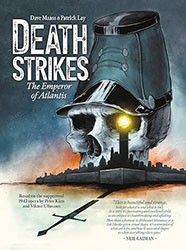In this book, Valerie Estelle Frankel analyzes one of the many facets of the artistic world that has been affected by Jewish creators: science fiction and fantasy. While these genres are often considered to be dominated by Christian imagery and themes, the effect Jewish creators have had on science fiction ranges from mainstream works such as Star Trek, to more intimate and overtly Jewish fiction from authors like Isaac Bashevis Singer. In particular, Frankel’s explorations of Space Balls and Dune provide unique perspectives on Jewish comedy alongside Jewish mysticism.
The ultimate strength in this text is that it serves as a companion to multiple pieces of science fiction and fantasy, while also focusing on a distinctively post-Holocaust thematic that arrives most clearly in the segment discussing post-apocalyptic works. The author’s observations are well supported by evidence cited directly from the source material. This strategy and presentation keeps both the analysis grounded, but also is able to point the reader’s attention to elements about which they can extrapolate and theorize for themselves. Frankel does not make the assumption that readers have already engaged with science-fiction analysis, but rather that they have been passive audiences of science fiction or fantasy and are eager to expand their knowledge of the genres. The one flaw in this is that if the reader is unfamiliar with a work being discussed, the text may be confusing.
Isla Lader is a journalist and English MA student with a bachelors in political science. When they’re not writing, they are performing comedy, reading Table Top Role Play Guidebooks, or exploring alleyways for forgotten furniture.





